Sep 28, 2017 | Non categorizzato, Word of
While St. Paul was in prison on account of his preaching, he wrote to the Christian community in the city of Philippi. He had been the very first to preach the Gospel there, and many people had come to believe and had committed themselves generously to this new life. Even after Paul had left them, they continued to bear witness to Christian love. Knowing this about them made him very happy, which is why his letter is full of affection for the Philippians. Paul encouraged them, therefore, to go ahead and to grow both as individuals and as a community. For this reason he reminded them of their model Jesus, who they should learn from. “Let the same mind be in you that was in Christ Jesus.” What is this “mind”? How can we know the deepest desires Jesus had so as to imitate him? Paul understood how: Jesus Christ, the Son of God, had emptied himself and had come down among us. He became man and was completely at the service of the Father, so that we could become children of God. Paul told the Galatians about this, saying, “And because you are children, God has sent the Spirit of his Son into our hearts, crying, ‘Abba! Father!’” (Gal 4:6). And in fact, John had already written about it in his Gospel: “But to all who received him, who believed in his name, he gave power to become children of God” (Jn 1:12). Jesus had fulfilled his mission through the way he lived his whole life. He continually humbled himself so as to reach those who were the smallest, weakest or most insecure: lepers, widows, strangers or sinners. He raised them up; making them feel loved and saved at last. “Let the same mind be in you that was in Christ Jesus.” In order to recognize and cultivate the mind of Jesus in us, let’s first be aware of his love and the power of his forgiveness. Let’s look to him, making his way of acting our own. It urges us to open our hearts, our minds and our arms to welcome each person just as they are. Let’s avoid making any judgements about others, but allow ourselves instead to be enriched by all that is positive in those we meet, even when it may be hidden in a pile of wretchedness and errors so that it seems to us a “waste of time” looking for it. The strongest desire in the mind of Jesus, which we can make our own, is love freely given, the willingness to be at the service of others with our talents, whether great or small, and to courageously and positively build up good relationships wherever we are. This love knows how to face difficulties, misunderstandings and differences with a gentle spirit, determined to find the ways of dialogue and mutual agreement. “Let the same mind be in you that was in Christ Jesus.” Chiara Lubich let the Gospel guide her entire life, and she experienced its power. In 1982, she wrote, “Imitating Jesus means understanding that we Christians only make sense if we live for others, if we think of our existence as a service for our brothers and sister, if we organize our lives on this basis.” “Then we fulfill what Jesus has most at heart. We will have fully grasped the Gospel. And we will be truly blessed.” Letizia Magri
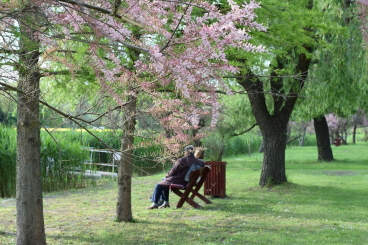
Sep 28, 2017 | Non categorizzato
 When my husband John was diagnosed with Alzheimer’s my life changed dramatically. I felt really frightened because there were times when he was hallucinating all night. I had no medication to give him, I wasn’t managing and there was no-one to turn to. John’s care manager was on maternity leave, the psychiatrist had discharged him, the GP was on holiday. After a lot of phone calls John’s new care manager placed him into respite care for a week. I wasn’t coping anymore. I didn’t feel up to the task of being his main carer and I was angry that things had deteriorated to that point. There was so much to do and finances to sort out. I was going downhill and my health was deteriorating. In the New Year I went to the HELP shop in the town and was told that a Carer Support Worker would contact me. It was about four weeks later that she came to see me. I told her everything and she understood. She was very sympathetic, helpful and supportive. A few weeks after this I went to a four-day meeting with people from the Focolare and my husband went into respite care. One evening I was with a group of about ten people and someone said, ‘What do you do Pam?’ I didn’t want to tell her anything so I ignored her question because I didn’t want everyone to know how I struggled and how weak and helpless I felt. But then I thought how rude I was because I would be very upset if someone ignored me when I asked them a question. I started telling the group how it was and when it came to the bit where I went to the HELP shop, I started crying. There was such a change in the dynamics even though I didn’t want attention at a time like this. Everyone was warm, caring and loving and tried to comfort me. They understood my misery and they loved me, they had compassion for me. I thought I would feel ashamed after my outburst but I told myself that these things happen and the great thing is I felt the burden had lifted and I had been healed. It was a grace that God had given me to help me with my difficulties. My situation hadn’t changed but I had. Looking after my husband had become the most important thing in my life but it had become a burden. Didn’t Jesus say, ‘My yoke is easy and my burden is light’? I needed to be reminded that God loved me immensely. Once I put God in the first place in my heart, mind and soul then everything was put into perspective. It was no longer a burden and I became confident looking after him. Some people advise that in situations like this we should pray more. This is true but what helped me in that moment was the presence of Jesus in that group who enabled me to experience the love of God. Now I know that I can count on everyone’s love as my experience with John continued to unfold. Source: New City Magazine (UK), August-September 2017 issue
When my husband John was diagnosed with Alzheimer’s my life changed dramatically. I felt really frightened because there were times when he was hallucinating all night. I had no medication to give him, I wasn’t managing and there was no-one to turn to. John’s care manager was on maternity leave, the psychiatrist had discharged him, the GP was on holiday. After a lot of phone calls John’s new care manager placed him into respite care for a week. I wasn’t coping anymore. I didn’t feel up to the task of being his main carer and I was angry that things had deteriorated to that point. There was so much to do and finances to sort out. I was going downhill and my health was deteriorating. In the New Year I went to the HELP shop in the town and was told that a Carer Support Worker would contact me. It was about four weeks later that she came to see me. I told her everything and she understood. She was very sympathetic, helpful and supportive. A few weeks after this I went to a four-day meeting with people from the Focolare and my husband went into respite care. One evening I was with a group of about ten people and someone said, ‘What do you do Pam?’ I didn’t want to tell her anything so I ignored her question because I didn’t want everyone to know how I struggled and how weak and helpless I felt. But then I thought how rude I was because I would be very upset if someone ignored me when I asked them a question. I started telling the group how it was and when it came to the bit where I went to the HELP shop, I started crying. There was such a change in the dynamics even though I didn’t want attention at a time like this. Everyone was warm, caring and loving and tried to comfort me. They understood my misery and they loved me, they had compassion for me. I thought I would feel ashamed after my outburst but I told myself that these things happen and the great thing is I felt the burden had lifted and I had been healed. It was a grace that God had given me to help me with my difficulties. My situation hadn’t changed but I had. Looking after my husband had become the most important thing in my life but it had become a burden. Didn’t Jesus say, ‘My yoke is easy and my burden is light’? I needed to be reminded that God loved me immensely. Once I put God in the first place in my heart, mind and soul then everything was put into perspective. It was no longer a burden and I became confident looking after him. Some people advise that in situations like this we should pray more. This is true but what helped me in that moment was the presence of Jesus in that group who enabled me to experience the love of God. Now I know that I can count on everyone’s love as my experience with John continued to unfold. Source: New City Magazine (UK), August-September 2017 issue
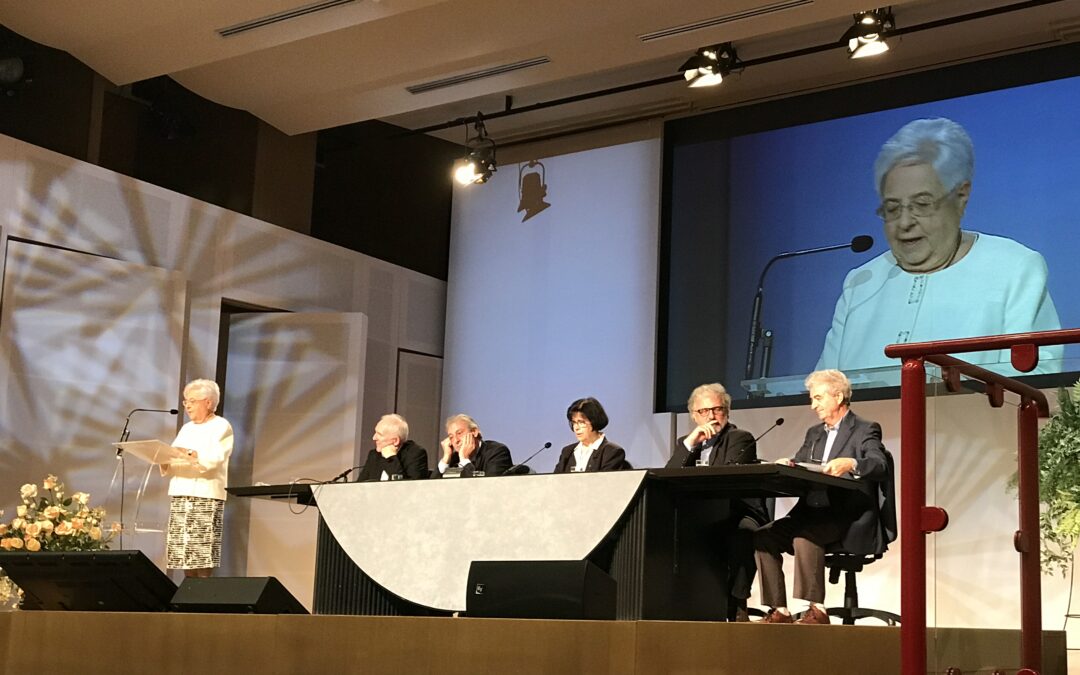
Sep 27, 2017 | Non categorizzato
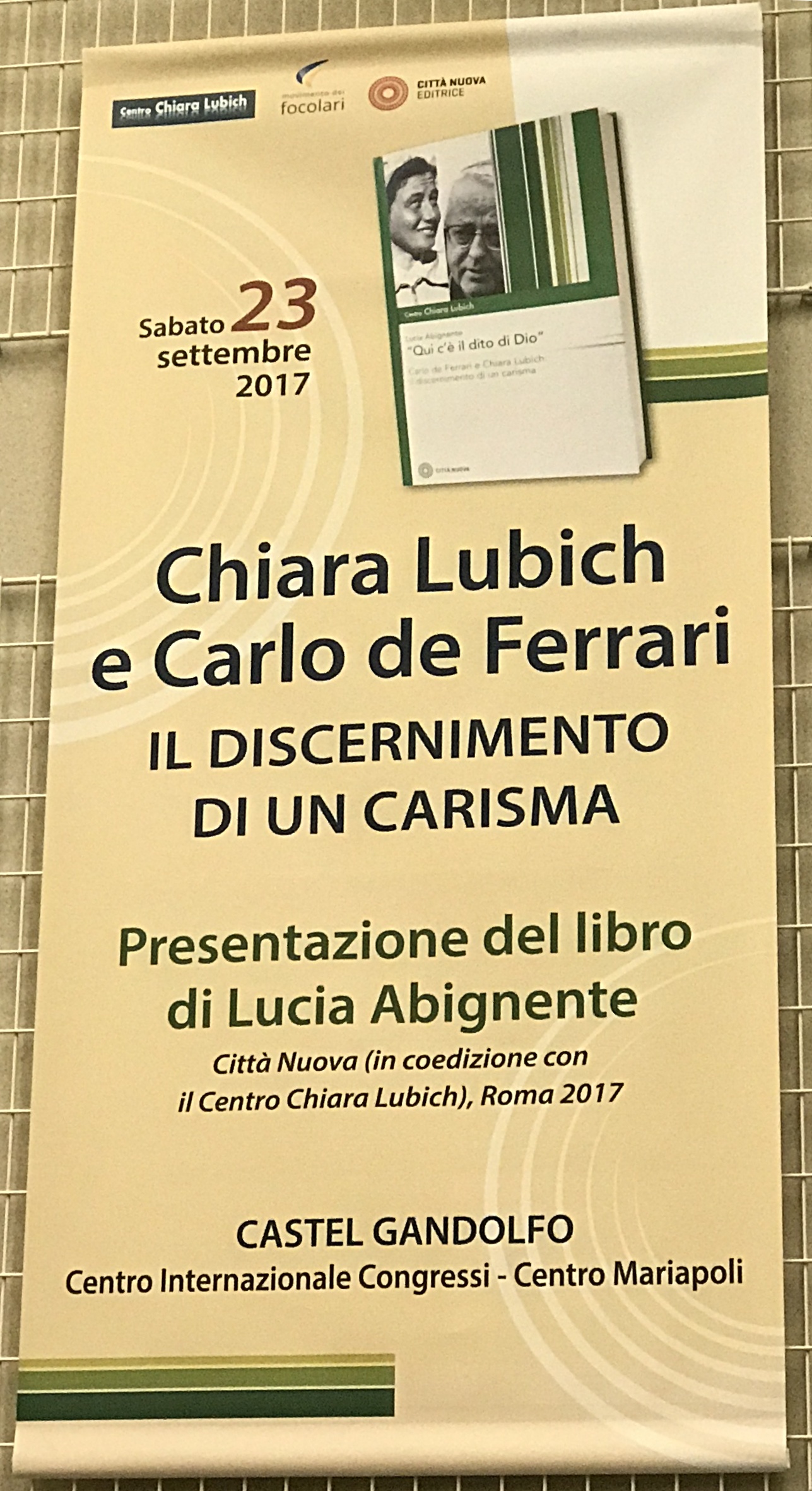 I am delighted to have the opportunity to greet all those attending the launch of the book:Qui c’è il dito di Dio” (“Here is the hand of God”). It is the second volume in the series “Studies and Documents” published by the Chiara Lubich Centre. The title of the book recalls words well known to the members of the Focolare Movement. They were spoken by the Archbishop of Trent, Most Rev. Carlo de Ferrari, who recognised that the new life coming about in his diocese, which was both edifying and opposed at the same time, did not come from human beings but “from the hand of God”. Clear insight allowed this pastor not to be influenced by judgements and considerations that were purely “human” but to enter more deeply into the surprising action of God made manifest through the life of a group of young women. All this took place 20 years before the Second Vatican Council, and history proved him right. As members of the Focolare Movement, we feel special gratitude to Archbishop De Ferrari for his wise discernment, which allowed the little fire that was burning to grow and later spread throughout the world. Looking back after 70 years, this work by Lucia Abignente helps us understand the extent to which the Archbishop’s perception was deeply rooted in the life of the Word of God and his action imbued with humility, perseverance, readiness to pay the price in person, and with prophecy. In reconstructing the events, which in this volume are derived from a multitude of sources, we can discover a golden thread. Both favourable and adverse circumstances allowed Chiara Lubich and “her” bishop to forge a relationship of communion that was living, and real. This relationship gave meaning to the alternating times of “hosanna” and “crucifixion” – to use words we find in their letters – and enabled Chiara to live out of love for God and the Church. These pages offer us an authentic and engaging witness to this love.
I am delighted to have the opportunity to greet all those attending the launch of the book:Qui c’è il dito di Dio” (“Here is the hand of God”). It is the second volume in the series “Studies and Documents” published by the Chiara Lubich Centre. The title of the book recalls words well known to the members of the Focolare Movement. They were spoken by the Archbishop of Trent, Most Rev. Carlo de Ferrari, who recognised that the new life coming about in his diocese, which was both edifying and opposed at the same time, did not come from human beings but “from the hand of God”. Clear insight allowed this pastor not to be influenced by judgements and considerations that were purely “human” but to enter more deeply into the surprising action of God made manifest through the life of a group of young women. All this took place 20 years before the Second Vatican Council, and history proved him right. As members of the Focolare Movement, we feel special gratitude to Archbishop De Ferrari for his wise discernment, which allowed the little fire that was burning to grow and later spread throughout the world. Looking back after 70 years, this work by Lucia Abignente helps us understand the extent to which the Archbishop’s perception was deeply rooted in the life of the Word of God and his action imbued with humility, perseverance, readiness to pay the price in person, and with prophecy. In reconstructing the events, which in this volume are derived from a multitude of sources, we can discover a golden thread. Both favourable and adverse circumstances allowed Chiara Lubich and “her” bishop to forge a relationship of communion that was living, and real. This relationship gave meaning to the alternating times of “hosanna” and “crucifixion” – to use words we find in their letters – and enabled Chiara to live out of love for God and the Church. These pages offer us an authentic and engaging witness to this love. 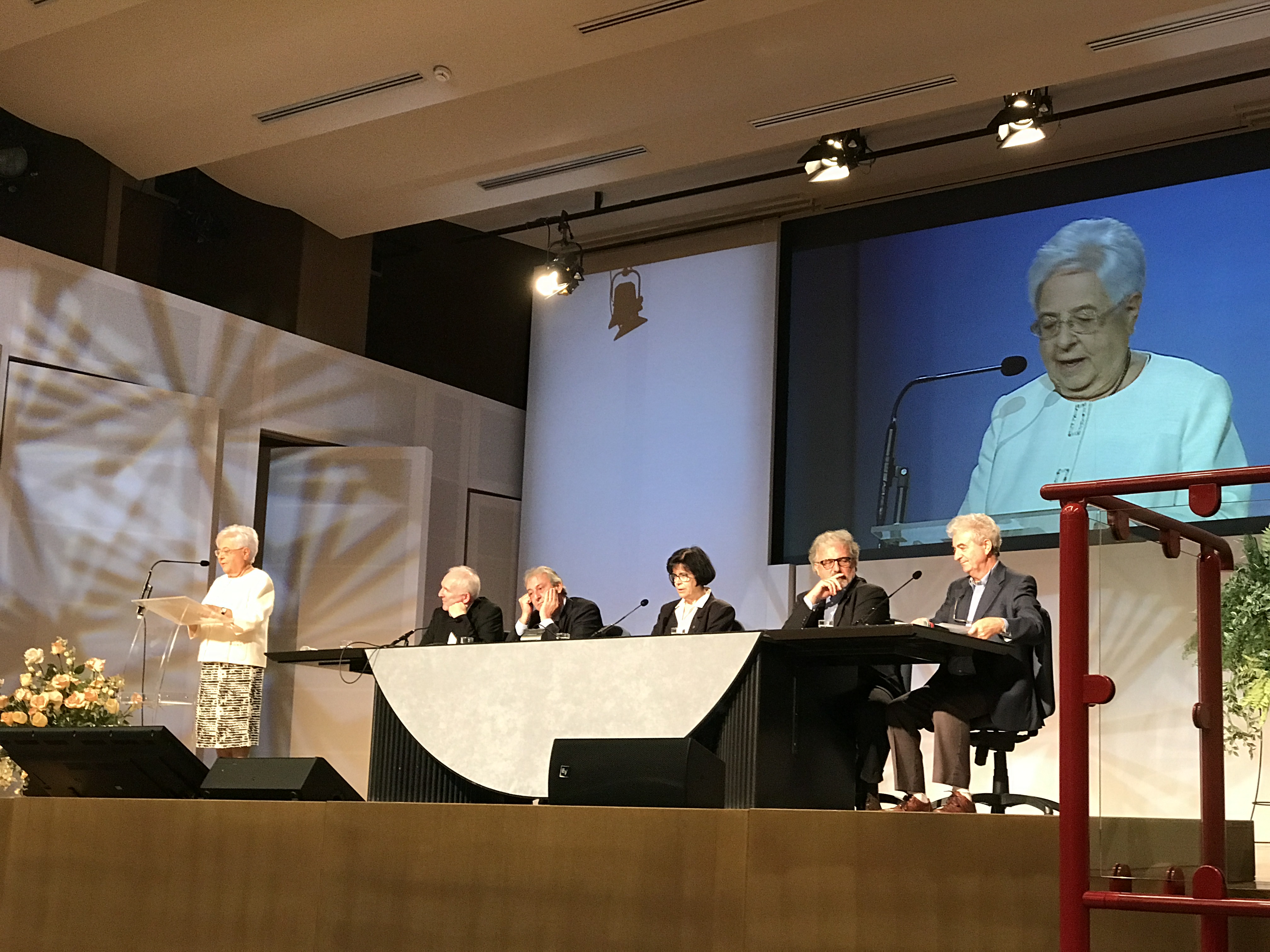 Today in addition, this witness represents an invitation to us to be newly aware of the gift of the charism we have received and of the potential of a foundation that, as is recognised today, opened up a pathway followed by other ecclesial realities. I am glad to note that the publication of this book occurs in the year the Focolare Movement is dedicating to deepening our understanding of Mary. Mary who represents one of the key points of the spirituality of unity. It was during the period of light lived during the summer of 1949 (in which the Holy Spirit enabled Chiara to contemplate the greatness of the Mother of God and to admire her in her unique beauty, all clothed with the Word of God) that God’s plan for the new Movement itself became clear; it was the Work of Mary. The “marian” vocation and hallmark of this Work are evident in these pages and given unconfutable proof – I would say – thanks to Chiara’s perennial renewal of her yes to God’s plans. Chiara said yes to her calling, yes to proclaiming the Ideal that imbued her whole life, yes to her readiness to offer and sacrifice the fruit born from it, during the years when the Movement was studied by the Church of Rome. In Mary’s “let it be” at the Annunciation, and in her yes in desolation at the foot of the cross, she is the model, the mould in which Chiara lived her divine adventure. In our time, there is “a new and more explicit awareness of the Marian principle in the Church, as a sacrament of unity”. I trust that the witness and the message conveyed by the book launched today, may be a gift for the whole people of God and help the Work of Mary to express the vocation that the Church confirmed in the Statutes: to be “as far as possible – a presence of Mary on earth and “almost” a continuation of her”.
Today in addition, this witness represents an invitation to us to be newly aware of the gift of the charism we have received and of the potential of a foundation that, as is recognised today, opened up a pathway followed by other ecclesial realities. I am glad to note that the publication of this book occurs in the year the Focolare Movement is dedicating to deepening our understanding of Mary. Mary who represents one of the key points of the spirituality of unity. It was during the period of light lived during the summer of 1949 (in which the Holy Spirit enabled Chiara to contemplate the greatness of the Mother of God and to admire her in her unique beauty, all clothed with the Word of God) that God’s plan for the new Movement itself became clear; it was the Work of Mary. The “marian” vocation and hallmark of this Work are evident in these pages and given unconfutable proof – I would say – thanks to Chiara’s perennial renewal of her yes to God’s plans. Chiara said yes to her calling, yes to proclaiming the Ideal that imbued her whole life, yes to her readiness to offer and sacrifice the fruit born from it, during the years when the Movement was studied by the Church of Rome. In Mary’s “let it be” at the Annunciation, and in her yes in desolation at the foot of the cross, she is the model, the mould in which Chiara lived her divine adventure. In our time, there is “a new and more explicit awareness of the Marian principle in the Church, as a sacrament of unity”. I trust that the witness and the message conveyed by the book launched today, may be a gift for the whole people of God and help the Work of Mary to express the vocation that the Church confirmed in the Statutes: to be “as far as possible – a presence of Mary on earth and “almost” a continuation of her”.
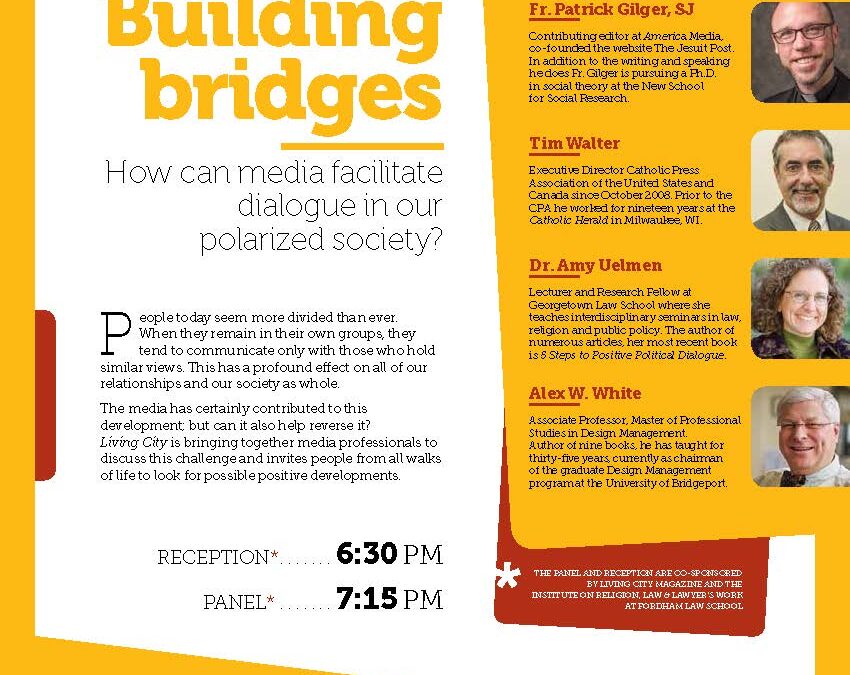
Sep 27, 2017 | Focolare Worldwide
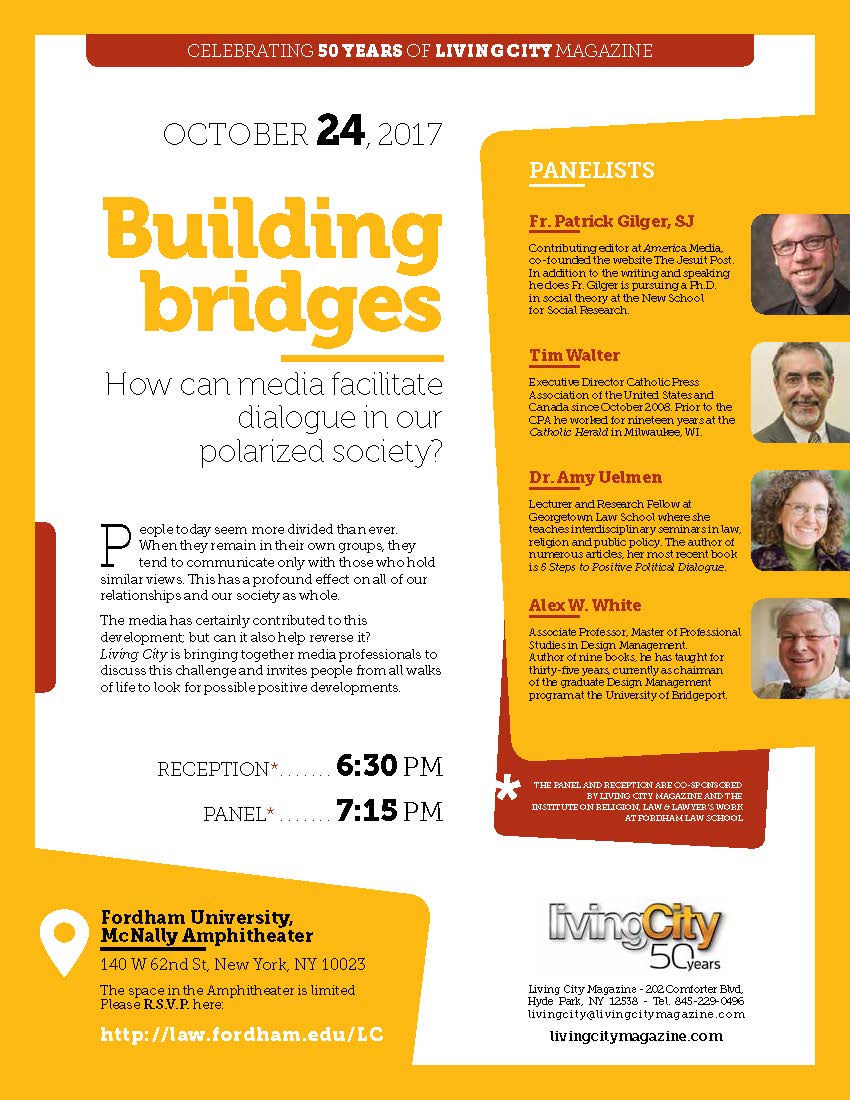 To celebrate its 50 years of activity, the English language magazine, founded in 1967 in New York as one of the 32 editions of the Focolare Movement, held a conference on 24 September entitled, “Building bridges: how can media facilitate dialogue in our polarised society?” at Fordham University in New York, with the contribution of professors and journalists. Living City is read and appreciated not only in the United States, but also in Canada, Australia, Ireland, Malta, New Zealand and many other English-speaking countries. Its readers are people of all ages and religious convictions. Recently it was awarded 5 prizes by the Catholic Press Association of North America.
To celebrate its 50 years of activity, the English language magazine, founded in 1967 in New York as one of the 32 editions of the Focolare Movement, held a conference on 24 September entitled, “Building bridges: how can media facilitate dialogue in our polarised society?” at Fordham University in New York, with the contribution of professors and journalists. Living City is read and appreciated not only in the United States, but also in Canada, Australia, Ireland, Malta, New Zealand and many other English-speaking countries. Its readers are people of all ages and religious convictions. Recently it was awarded 5 prizes by the Catholic Press Association of North America.
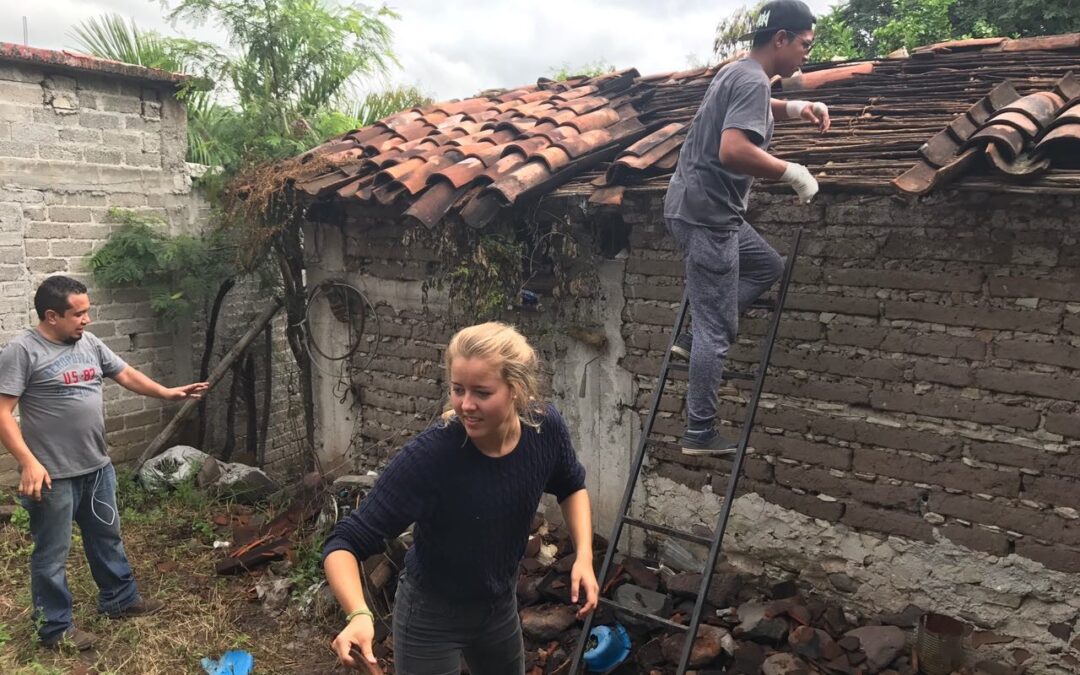
Sep 27, 2017 | Focolare Worldwide
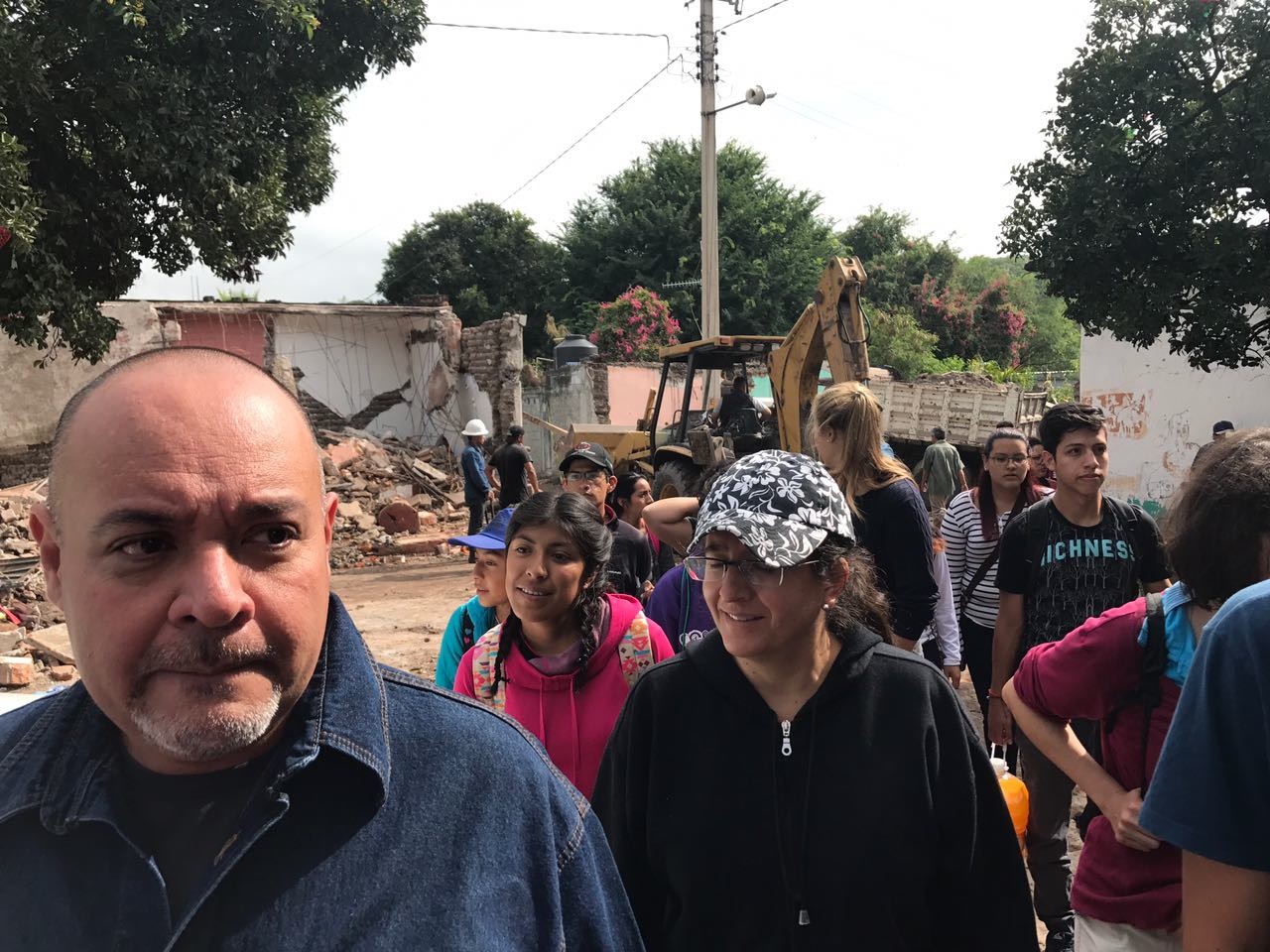 “Many of us stepped forward right away to help, along with the overwhelming majority of Mexican people, even though we were completely grasped by fear, as we tried to gather the requests for help that were coming in from every corner Mexico City and from the regions of the outback that were also hard hit. The strong sense of solidarity was everywhere. Hotels opened their doors to those who had lost homes. Doctors and psychologists offered services for free; families cooked and shared soup for everyone. Hundreds of volunteers worked hard without rest. They were all ordinary people who a few hours before were workers, sellers, housewives and employees. Once again in the midst of an emergency Mexicans showed their true colours, never losing hope and spreading joy and enthusiasm even amidst the darkest moments. Streams of people helped out in simple ways, giving the appearance of a living giant rising from the dust.
“Many of us stepped forward right away to help, along with the overwhelming majority of Mexican people, even though we were completely grasped by fear, as we tried to gather the requests for help that were coming in from every corner Mexico City and from the regions of the outback that were also hard hit. The strong sense of solidarity was everywhere. Hotels opened their doors to those who had lost homes. Doctors and psychologists offered services for free; families cooked and shared soup for everyone. Hundreds of volunteers worked hard without rest. They were all ordinary people who a few hours before were workers, sellers, housewives and employees. Once again in the midst of an emergency Mexicans showed their true colours, never losing hope and spreading joy and enthusiasm even amidst the darkest moments. Streams of people helped out in simple ways, giving the appearance of a living giant rising from the dust. 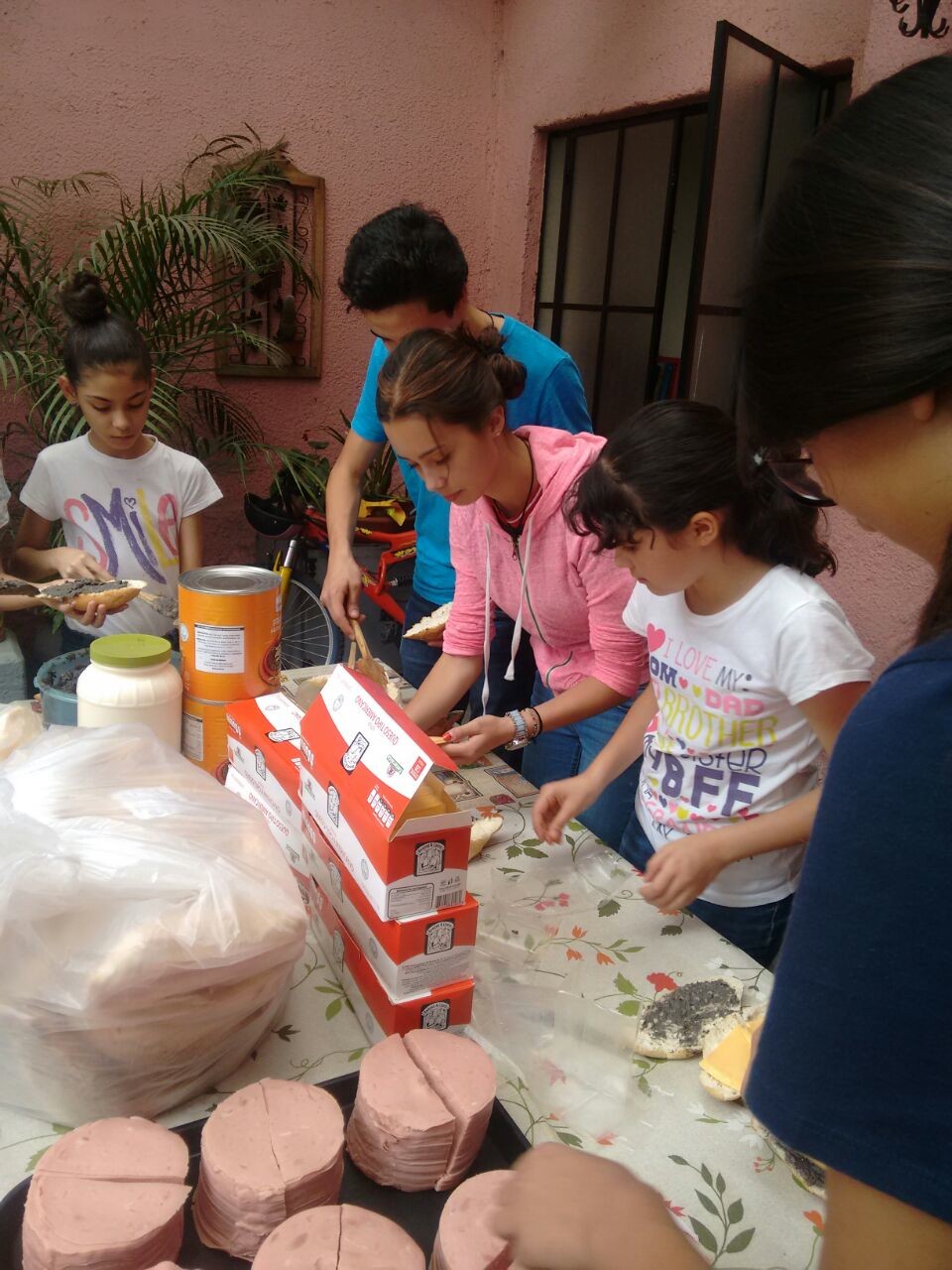 The disaster has also hit cities, such Puebla, Mexico City, Morelos, Chiapas and Oaxaca. Several members of our community offered their help, especially in Puebla and Morelos and other towns where assistance arrived more slowly. One family from Mexico City set up a collection centre in their own home, and then moved to Morelos to distribute foodstuffs and basic necessities to the neediest among the people. The young people from Mariapolis El Diamante went to Contla, located in the State of Pueblo, which was very hard hit by the earthquake. They removed rubble, loaded and delivered foodstuffs, and consoled those who had lost everything. To reach this particular community, which is located in a place that is hard to reach, they had to cross a river and pass over a deep ravine on a rope bridge they constructed on the spot. Meanwhile, the Economy of Communion group from Puebla organized an assistance project at Sant’Antonio Alponocan in another community of the region. Finally, with the goal of coordinating the efforts, we created an emergency committee in Mexico City that launched a census of the damage and of the needs.
The disaster has also hit cities, such Puebla, Mexico City, Morelos, Chiapas and Oaxaca. Several members of our community offered their help, especially in Puebla and Morelos and other towns where assistance arrived more slowly. One family from Mexico City set up a collection centre in their own home, and then moved to Morelos to distribute foodstuffs and basic necessities to the neediest among the people. The young people from Mariapolis El Diamante went to Contla, located in the State of Pueblo, which was very hard hit by the earthquake. They removed rubble, loaded and delivered foodstuffs, and consoled those who had lost everything. To reach this particular community, which is located in a place that is hard to reach, they had to cross a river and pass over a deep ravine on a rope bridge they constructed on the spot. Meanwhile, the Economy of Communion group from Puebla organized an assistance project at Sant’Antonio Alponocan in another community of the region. Finally, with the goal of coordinating the efforts, we created an emergency committee in Mexico City that launched a census of the damage and of the needs. 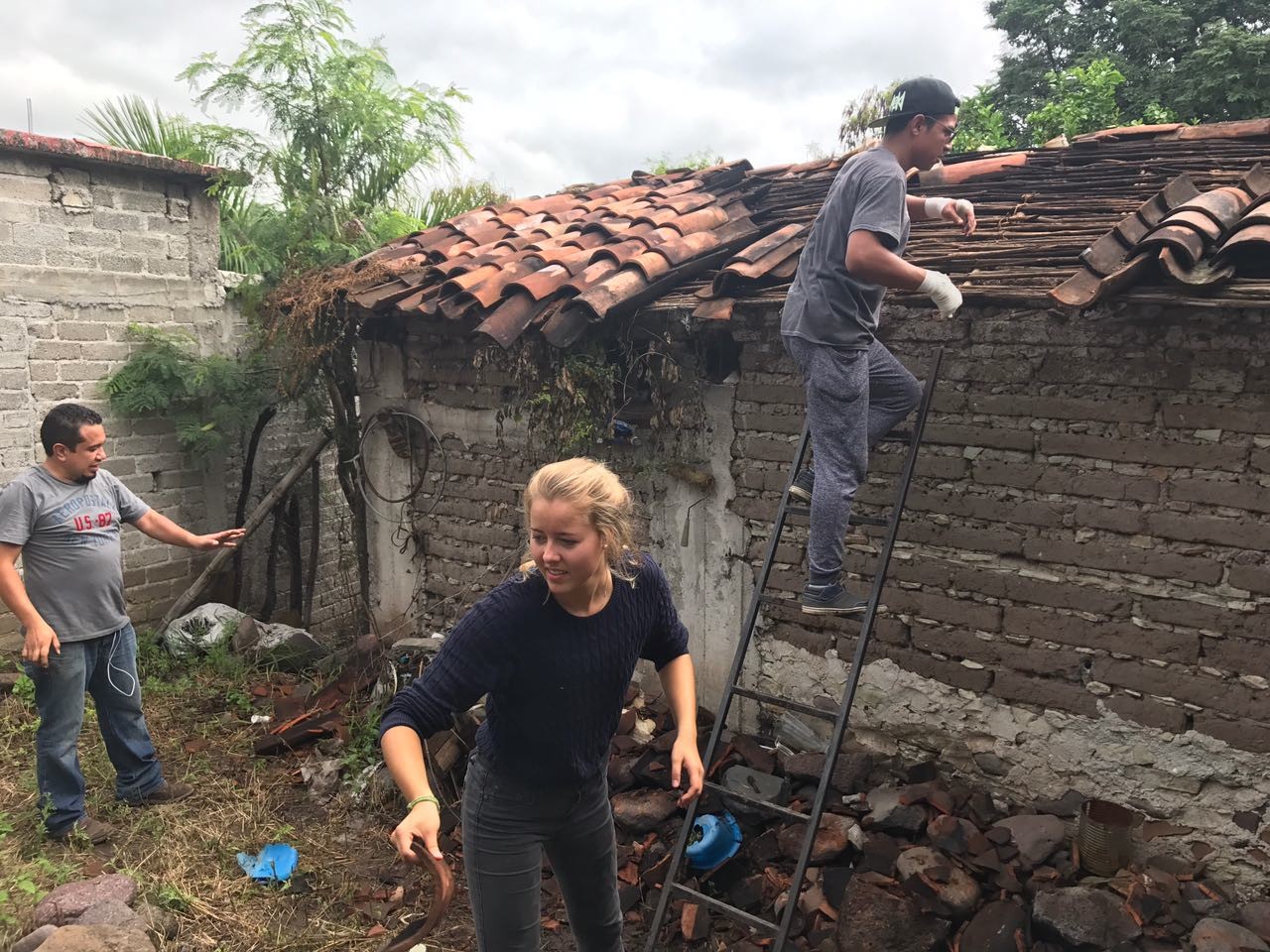 In those hard moments we always kept in mind the words that Our Lady of Guadalupe spoke to San Juan Diego on Mt Tepeyac, asking him to remember them always: ‘Put this in your heart, my small son: Don’t be afraid. Am I not here who am your Mother? Are you not in my shadow, under my protection? Am I not the source of your joy? Are you not in the folds of my mantle, in my embrace? Is there anything else you could need?’” All of us in the Focolare have strengthened our commitment to work for love and brotherhood, for both the physical and spiritual reconstruction of our land.” Mexico City, September 25, 2017
In those hard moments we always kept in mind the words that Our Lady of Guadalupe spoke to San Juan Diego on Mt Tepeyac, asking him to remember them always: ‘Put this in your heart, my small son: Don’t be afraid. Am I not here who am your Mother? Are you not in my shadow, under my protection? Am I not the source of your joy? Are you not in the folds of my mantle, in my embrace? Is there anything else you could need?’” All of us in the Focolare have strengthened our commitment to work for love and brotherhood, for both the physical and spiritual reconstruction of our land.” Mexico City, September 25, 2017
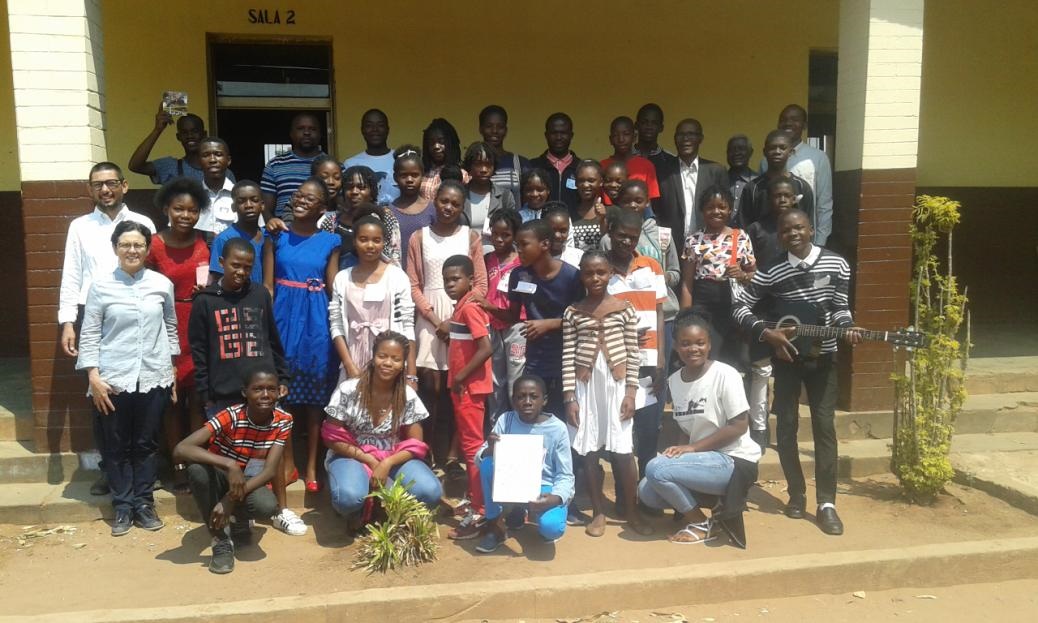
Sep 26, 2017 | Focolare Worldwide
 Small groups comprised of young people and adults from different callings in the Focolare Movement spend brief periods in temporary communities known in Italian as “focolares” or “hearths,” far from their homes, visiting far-away and sometimes isolated communities around the globe. This year, there were forty such hearths from Sri Lanka to the Azores, from Vietnam to Santo Domingo, from Brazil to Tanzania. They were self-financed with lots of personal sacrifice. Each community has a different story, but they all share one common denominator: the presence of a temporary hearth that helps bring new life. Idalina and Toni are a family from Portugal. They and seven other people, including some young people, left in August for Saurimo, Angola. “We stayed at the Bishop’s house, and shared our meals and many other moments of the day with him.” During their two-week stay they formed many friendships with the children and adults of the local community: “At the end of the fourteen days, they asked us when we would come back again.” Chiara Lubich’s art of loving turned out to be a great discovery for them.”
Small groups comprised of young people and adults from different callings in the Focolare Movement spend brief periods in temporary communities known in Italian as “focolares” or “hearths,” far from their homes, visiting far-away and sometimes isolated communities around the globe. This year, there were forty such hearths from Sri Lanka to the Azores, from Vietnam to Santo Domingo, from Brazil to Tanzania. They were self-financed with lots of personal sacrifice. Each community has a different story, but they all share one common denominator: the presence of a temporary hearth that helps bring new life. Idalina and Toni are a family from Portugal. They and seven other people, including some young people, left in August for Saurimo, Angola. “We stayed at the Bishop’s house, and shared our meals and many other moments of the day with him.” During their two-week stay they formed many friendships with the children and adults of the local community: “At the end of the fourteen days, they asked us when we would come back again.” Chiara Lubich’s art of loving turned out to be a great discovery for them.”  At Yellowknife, the main city of the region and Seat of the Diocese, we were welcomed by the Emeritus Bishop who has spent his life among the Native American populations of the north. Coming back from a month among Native Americans in Canada’s North West Territories, Father Harry Clark, a priest from British Columbia, Marilena and Mike Murray, a husband and wife from the state of Maryland, in USA, Maria Santana from Montreal and Ljubica Dekic from Toronto write: “From there, we took off for Wha Ti, one of four villages of the Tlicho Tribe, 40 minutes by plane. We were guests of the parish rectory. The villagers were simple folk and very reserved. One of the problems in the tribe is the communication gap between the elderly, who are rooted in Native American culture and the younger generations, who no longer use the tribe’s native language. We presented the spirituality of communion, and then focused our attention on the activities of the small Catholic community for children and adults. We also met some Lutherans and a couple of Mennonite missionaries, a very nice collaboration was begun. We went by canoe along the river and took part in some tribal events with the annual assembly of villages that happened to be taking place during that time.”
At Yellowknife, the main city of the region and Seat of the Diocese, we were welcomed by the Emeritus Bishop who has spent his life among the Native American populations of the north. Coming back from a month among Native Americans in Canada’s North West Territories, Father Harry Clark, a priest from British Columbia, Marilena and Mike Murray, a husband and wife from the state of Maryland, in USA, Maria Santana from Montreal and Ljubica Dekic from Toronto write: “From there, we took off for Wha Ti, one of four villages of the Tlicho Tribe, 40 minutes by plane. We were guests of the parish rectory. The villagers were simple folk and very reserved. One of the problems in the tribe is the communication gap between the elderly, who are rooted in Native American culture and the younger generations, who no longer use the tribe’s native language. We presented the spirituality of communion, and then focused our attention on the activities of the small Catholic community for children and adults. We also met some Lutherans and a couple of Mennonite missionaries, a very nice collaboration was begun. We went by canoe along the river and took part in some tribal events with the annual assembly of villages that happened to be taking place during that time.”  In Bambio, 300 kilometres from Bangui, in the Central African Republic, one temporary “focolare” met a group of Pygmies that has been living the ideal of unity for twenty years. Fidelia writes: “The Pygmies possess so many beautiful values: loyalty, monogamy, purity a sense of the sacred. They told us their experiences in living the art of loving and the Word of Life. Each village meets once a week, from six o’clock in the morning until eight o’clock, before the day begins. The told us: “The focolare taught us to live, to love, to make ourselves one with others. There is no longer ‘you’ and ‘us’ – we’re all ‘us’. The Pygmies don’t mix with others, because they look down on us. But the focolare looked at us as equals and came to live with us, to share our sorrows and joys. They didn’t ask us to become Catholics, but they taught us love.” Someone else said: “We Pygmies have many traditional practices. But ever since we’ve been we’ve been part of the focolare, we’ve dropped a few of them. For example, when my son got sick, I didn’t turn to the witch doctor has I had done before, but took him to hospital. As soon as the focolarinies heard, they came to help me until he was well again.” The gratitude and enrichment was mutual, as the awareness that we’re one family is growing.
In Bambio, 300 kilometres from Bangui, in the Central African Republic, one temporary “focolare” met a group of Pygmies that has been living the ideal of unity for twenty years. Fidelia writes: “The Pygmies possess so many beautiful values: loyalty, monogamy, purity a sense of the sacred. They told us their experiences in living the art of loving and the Word of Life. Each village meets once a week, from six o’clock in the morning until eight o’clock, before the day begins. The told us: “The focolare taught us to live, to love, to make ourselves one with others. There is no longer ‘you’ and ‘us’ – we’re all ‘us’. The Pygmies don’t mix with others, because they look down on us. But the focolare looked at us as equals and came to live with us, to share our sorrows and joys. They didn’t ask us to become Catholics, but they taught us love.” Someone else said: “We Pygmies have many traditional practices. But ever since we’ve been we’ve been part of the focolare, we’ve dropped a few of them. For example, when my son got sick, I didn’t turn to the witch doctor has I had done before, but took him to hospital. As soon as the focolarinies heard, they came to help me until he was well again.” The gratitude and enrichment was mutual, as the awareness that we’re one family is growing.
Sep 25, 2017 | Non categorizzato
https://vimeo.com/233854454
Sep 25, 2017 | Non categorizzato
In September, the Shalom Catholic Community celebrated its 35th anniversary. The Community, with which the Focolare Movement is strongly bound by a deep friendship, was born in 1982, from the initiative of some university youths led by Moysés Louro de Azevedo Filho and with the encouragement of the Archbishop of Fortaleza. Even if it’s main objective was that of hosting the youths and announcing the Gospel to them, in a short time, it spread also among families, children and people from different socio-cultural backgrounds, united by the call to live in prayer, fraternal life and service. It is currently established in South America, North America, the Middle East, Europe, Africa and Asia. Besides numerous prayer groups, the Community has opened art and culture centres, schools, homes for the aged, sick and homeless people and set anti-abortion projects, rehabilitation of drug addicts and shelters for homeless children. All our best wishes to the Shalom Community!

Sep 23, 2017 | Non categorizzato

Bishop Klaus Hemmerle
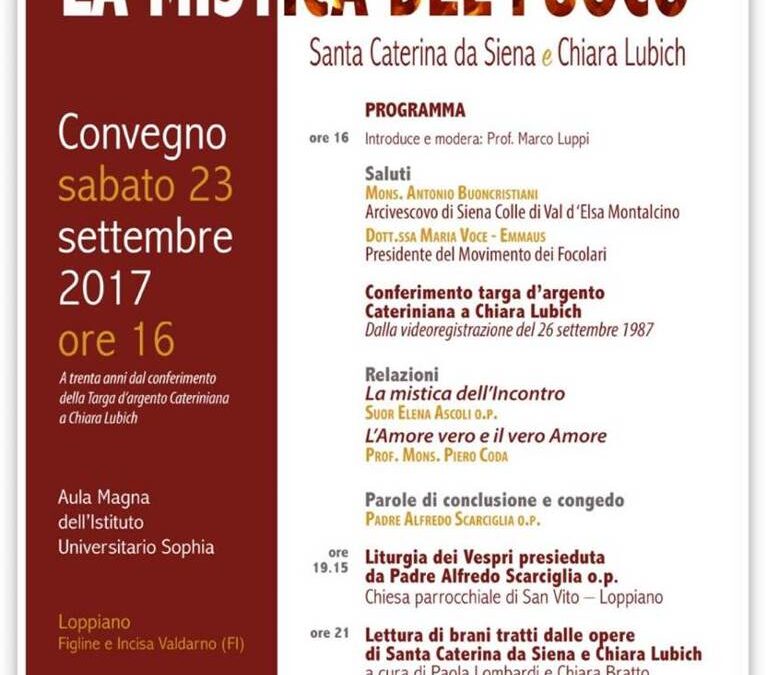
Sep 22, 2017 | Non categorizzato
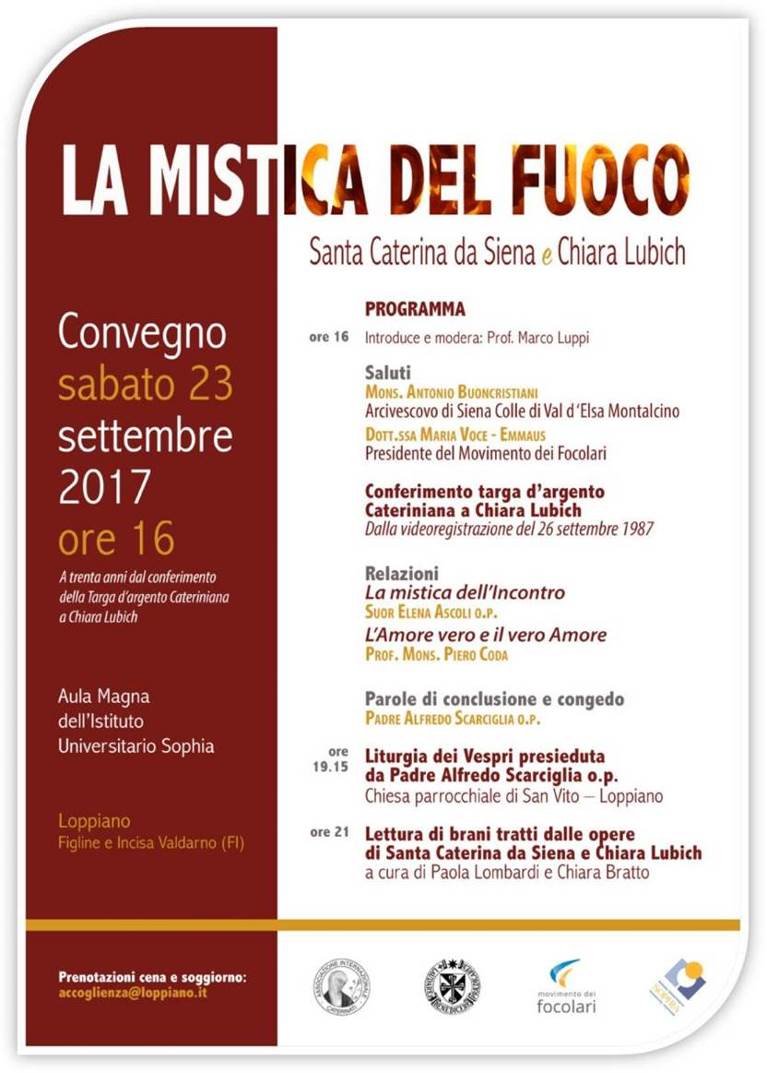 On the 30th anniversary of the conferral of the St Catherine of Siena Silver Medal to Chiara Lubich, the Community of the Dominican Fathers of Siena, Italy, will hold a gathering in collaboration with the International Catherinite Association and the Focolare, in the Focolare town founded by Chiara Lubich in 1964. The event was titled: “The Myticism of Fire in Catherine and Chiara”. Presenters included Dr Piero Coda, president of Sophia University, Sister Elana Ascoli O.P. from the International Catherinite Association and Father Alfredo Scarciglia O.P. , Moderator and Prior of the Convent of St Dominic of Siena and ecclesiastical assistant of the Catherinites. A message from Maria Voce, president of the Focolare Movement, will also be read. During the gathering a DVD recording of the conferral of the St Catherine Badge to Chiara Lubich will be shown, and actress paola Lambardi will read some writings of St Catherine. Programme
On the 30th anniversary of the conferral of the St Catherine of Siena Silver Medal to Chiara Lubich, the Community of the Dominican Fathers of Siena, Italy, will hold a gathering in collaboration with the International Catherinite Association and the Focolare, in the Focolare town founded by Chiara Lubich in 1964. The event was titled: “The Myticism of Fire in Catherine and Chiara”. Presenters included Dr Piero Coda, president of Sophia University, Sister Elana Ascoli O.P. from the International Catherinite Association and Father Alfredo Scarciglia O.P. , Moderator and Prior of the Convent of St Dominic of Siena and ecclesiastical assistant of the Catherinites. A message from Maria Voce, president of the Focolare Movement, will also be read. During the gathering a DVD recording of the conferral of the St Catherine Badge to Chiara Lubich will be shown, and actress paola Lambardi will read some writings of St Catherine. Programme
















